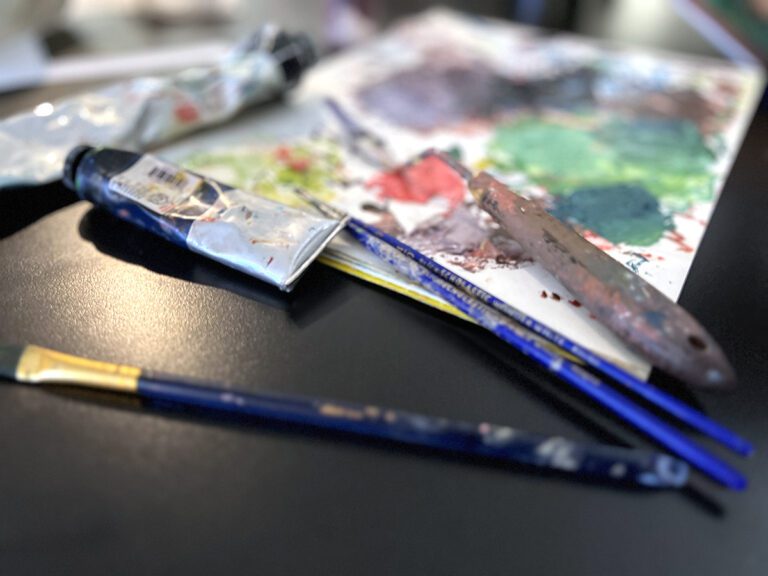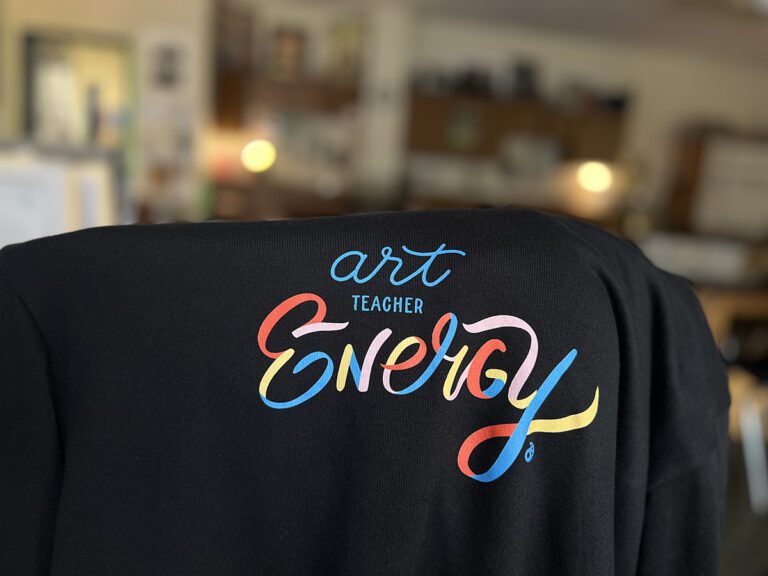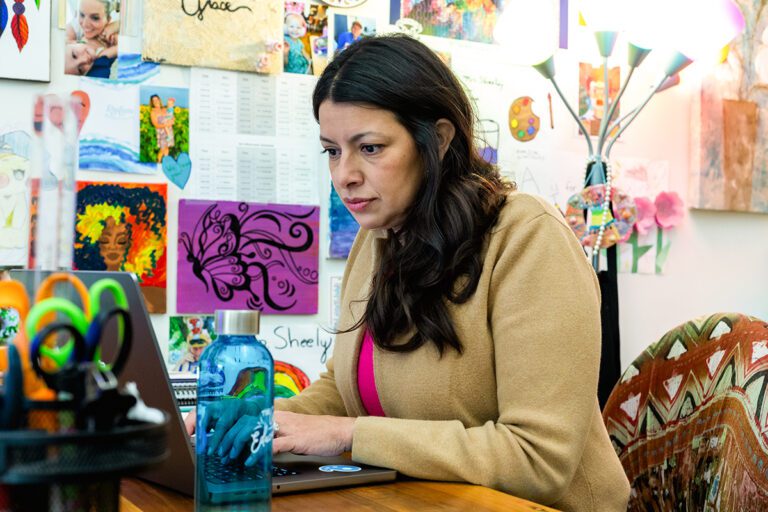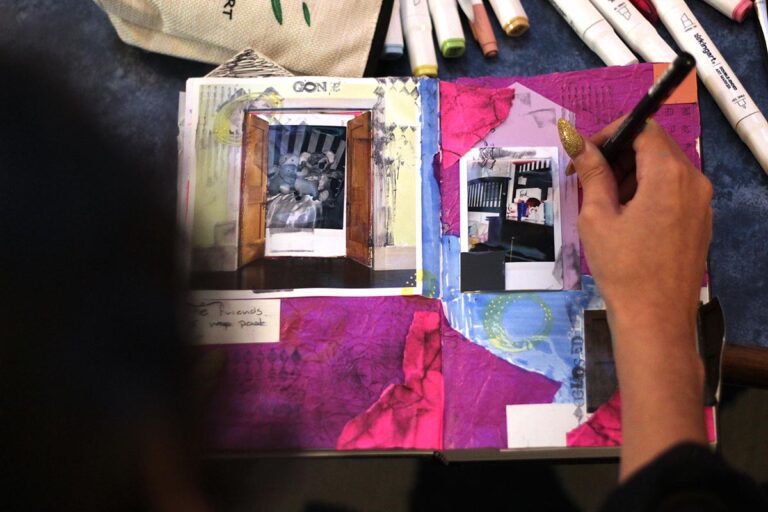If sorting art supplies and student work isn’t enough, there is another important area to maintain in the art room, and that is your desk. Most of us keep way too much paperwork on hand, and much of it is unnecessary. In fact, most of our paperwork becomes obsolete quickly, but something inside of us wants to keep hold of it ‘just in case’ we need it again (that is, if we can find it!). This causes stress.
Here are 5 items you can get rid of right now to clear your paper clutter.
1. Lessons from Student Teaching
Come on, if you haven’t done them in 10 years, you will likely never do them, especially when there are so many new ideas out there right at your fingertips online.
2. Old Policies
Last year’s staff handbook? Old insurance policies? These items WERE valuable when they were actually in effect, but now there is a new replacement, so get rid of the old.
3. Old Grade Books
I like to keep these around for at least a year, just in case a grade is in question, but after this timeframe, feel free to shred.
4. Every. Single. Sample.
If you are like me, you’ve often pulled open a lesson folder to find 5 half-done samples that you created while demonstrating. Why do we always keep these? You don’t need them, and they are taking up valuable space. You really only need one complete sample. Even better? Take a photo and digitize it!
5. Printed Emails
When you print an email, it means you will have a digital and a paper copy to keep track of, and that means double the hassle. Only print if it’s really, really important.
Hopefully these ideas will clear some space in your desk drawers and minimize the piles. Remember, a clean desk will equate to a clear mind, so try to clear the top of your desk every night before you leave allowing you to arrive with a fresh space each morning.
Good Luck!
How do you keep paper clutter and your desk area under control? Let us know in the comments!
Magazine articles and podcasts are opinions of professional education contributors and do not necessarily represent the position of the Art of Education University (AOEU) or its academic offerings. Contributors use terms in the way they are most often talked about in the scope of their educational experiences.





